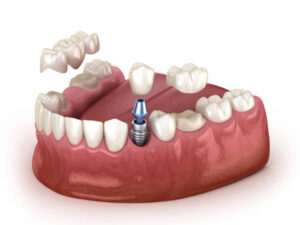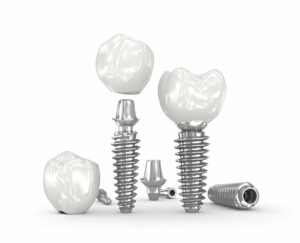Receding gums can be a concern for many people considering dental implants. The good news is that, thanks to modern dental technology, dental implants are often still an option. In this article, we will explore how receding gums affect eligibility for Dental implants. We will also cover the steps you can take to ensure a successful procedure.
Understanding Receding Gums
Receding gums occur when the gum tissue surrounding your teeth wears away or pulls back, exposing more of the tooth or even the tooth root. This can lead to several dental issues, including increased tooth sensitivity and a higher risk of decay.
Symptoms of Receding Gums
- Red, irritated gums
- Bleeding gums after brushing or flossing
- Loose teeth
- Bad breath
- Discomfort along the gum line
- Exposed roots
Causes of Receding Gums
Several factors can contribute to receding gums, including:
- Gum Disease: Periodontal disease is a major cause of gum recession. Plaque buildup can lead to inflammation and damage to the gum tissue.
- Aggressive Brushing: Brushing your teeth too hard can wear down the gums.
- Poor Oral Hygiene: Neglecting your dental care routine can lead to gum disease.
- Smoking: Tobacco use can contribute to gum recession.
- Genetics: Some people are more prone to gum disease due to their genetic makeup.
- Hormonal Changes: Fluctuations in hormones, particularly in women, can affect gum health.
- Diabetes: This condition can increase the risk of infections, including gum disease.
- Teeth Grinding: Clenching or grinding your teeth can damage your gums.
Dental Implants and Receding Gums
If you have receding gums, it’s essential to address the underlying cause before considering dental implants. Healthy gum tissue and sufficient jawbone density are crucial for the success of dental implants. Here’s what you need to know:
Treating the Cause of Gum Recession
- Gum Disease Treatment varies by severity. It may include scaling and root planing, antibiotics, or surgery.
- Teeth Grinding: Wearing a mouthguard can protect your teeth and gums from further damage.
- Improving Oral Hygiene: Brush and floss often. Also, visit your dentist for cleanings. This can help keep your gums healthy.
Grafting Procedures
In cases of significant gum recession, grafting procedures can restore the gum and bone tissue needed for dental implants. Types of grafts include:
- Gum Grafts: Tissue is taken from another part of your mouth or a donor and used to cover exposed roots.
- Bone Grafts: Bone material is added to strengthen the jawbone.
Preparing for Dental Implants
Before getting dental implants, your dentist will check your oral health. They will see if any prep treatments are needed. Here are the steps involved:
Evaluation and Planning
Your dentist will assess the health of your gums and jawbone. X-rays or CT scans may be used to plan the implant placement.
Addressing Gum Recession
Treatments such as gum grafting or bone grafting may be recommended to ensure a solid foundation for the implants.
Implant Placement
Once your gums and jawbone are healthy, the dental implant procedure can be scheduled. The implant, a small titanium post, is placed into the jawbone to act as a tooth root.
Long-Term Care for Dental Implants
After getting dental implants, it’s essential to maintain good oral hygiene to ensure their longevity. Here are some tips:
- Brush and Floss Regularly: Keep your teeth and implants clean to prevent gum disease.
- Visit Your Dentist: Regular check-ups will help monitor the health of your gums and implants.
- Avoid Smoking: Tobacco use can negatively impact the success of your implants.
Final Thoughts
Having receding gums doesn’t mean you can’t get dental implants. By addressing the underlying causes and ensuring your gums and jawbone are healthy, you can enjoy the benefits of dental implants. If you’re considering dental implants, talk to your dentist. They will create a plan tailored to your needs. Prioritise your oral health and take the necessary steps to ensure a successful implant procedure.
Frequently Asked Question
Can I get dental implants if I have gum disease?
Yes, but you must treat the gum disease first. Proper treatment and maintenance are essential for the success of dental implants.
How long does gum grafting take to heal?
Gum grafting typically takes a few weeks to heal. Follow your dentist’s instructions for the best results.
Are bone grafts painful?
Bone graft procedures are usually done under local anaesthesia, so you shouldn’t feel pain during the procedure. Mild discomfort afterward is common but manageable with pain relief.
How do I know if I need a gum graft?
Your dentist will assess your gum health and determine if a gum graft is necessary to support dental implants.
Can smoking affect my dental implants?
Yes, smoking can negatively impact the success of dental implants. It’s best to avoid smoking to ensure optimal healing and implant stability.




